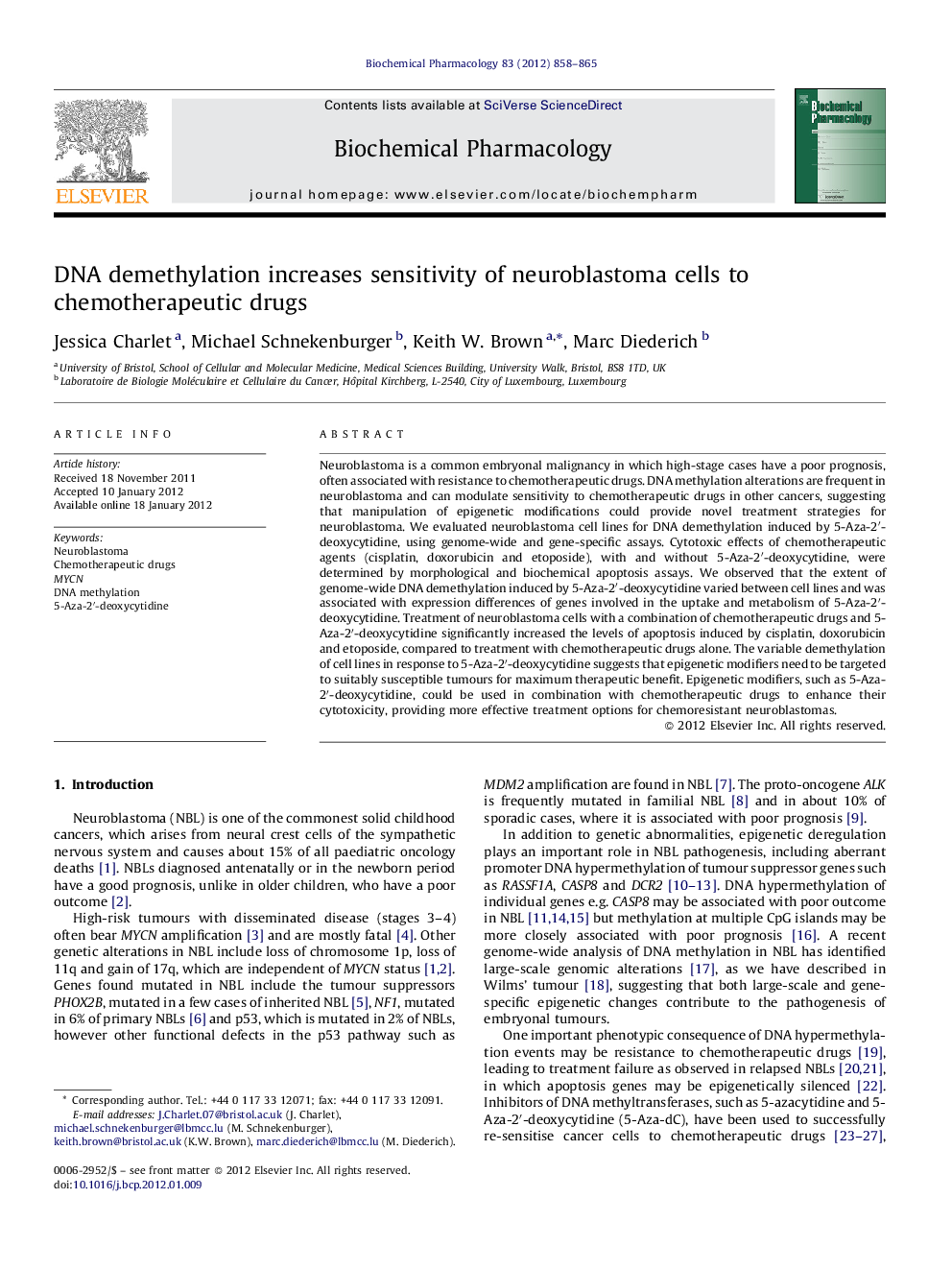| Article ID | Journal | Published Year | Pages | File Type |
|---|---|---|---|---|
| 2513456 | Biochemical Pharmacology | 2012 | 8 Pages |
Neuroblastoma is a common embryonal malignancy in which high-stage cases have a poor prognosis, often associated with resistance to chemotherapeutic drugs. DNA methylation alterations are frequent in neuroblastoma and can modulate sensitivity to chemotherapeutic drugs in other cancers, suggesting that manipulation of epigenetic modifications could provide novel treatment strategies for neuroblastoma. We evaluated neuroblastoma cell lines for DNA demethylation induced by 5-Aza-2′-deoxycytidine, using genome-wide and gene-specific assays. Cytotoxic effects of chemotherapeutic agents (cisplatin, doxorubicin and etoposide), with and without 5-Aza-2′-deoxycytidine, were determined by morphological and biochemical apoptosis assays. We observed that the extent of genome-wide DNA demethylation induced by 5-Aza-2′-deoxycytidine varied between cell lines and was associated with expression differences of genes involved in the uptake and metabolism of 5-Aza-2′-deoxycytidine. Treatment of neuroblastoma cells with a combination of chemotherapeutic drugs and 5-Aza-2′-deoxycytidine significantly increased the levels of apoptosis induced by cisplatin, doxorubicin and etoposide, compared to treatment with chemotherapeutic drugs alone. The variable demethylation of cell lines in response to 5-Aza-2′-deoxycytidine suggests that epigenetic modifiers need to be targeted to suitably susceptible tumours for maximum therapeutic benefit. Epigenetic modifiers, such as 5-Aza-2′-deoxycytidine, could be used in combination with chemotherapeutic drugs to enhance their cytotoxicity, providing more effective treatment options for chemoresistant neuroblastomas.
Graphical abstractFigure optionsDownload full-size imageDownload as PowerPoint slide
